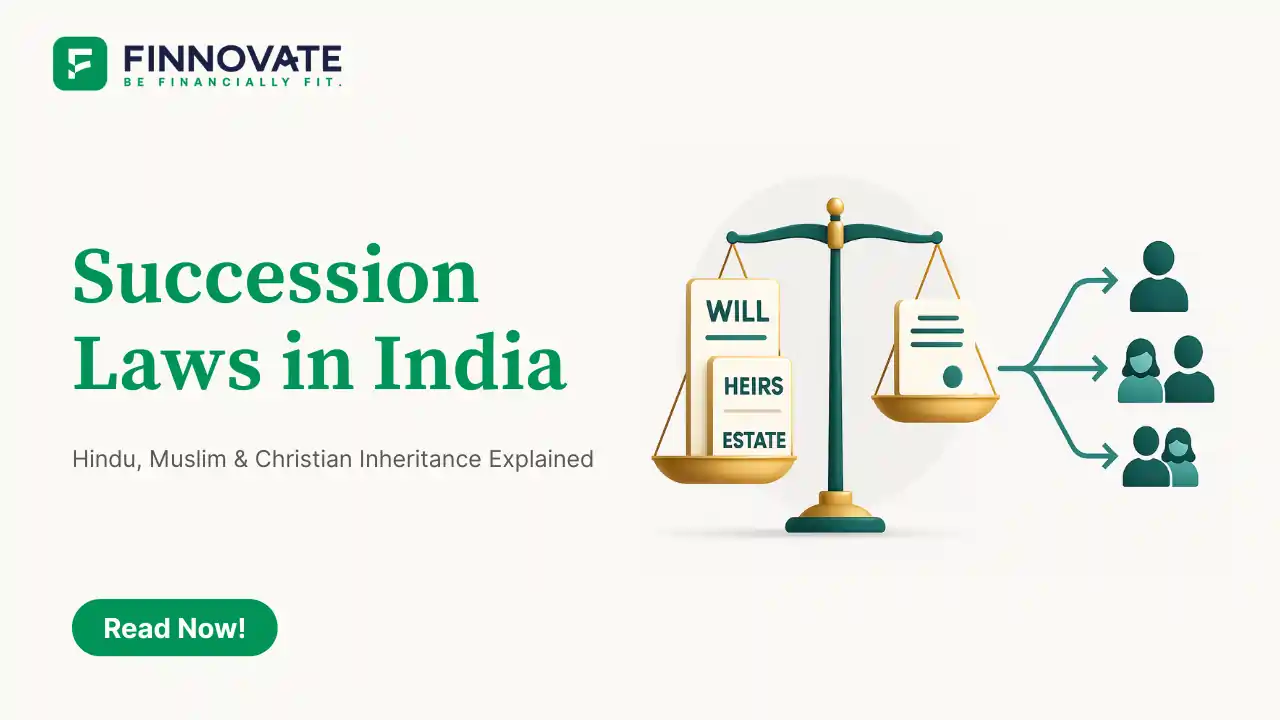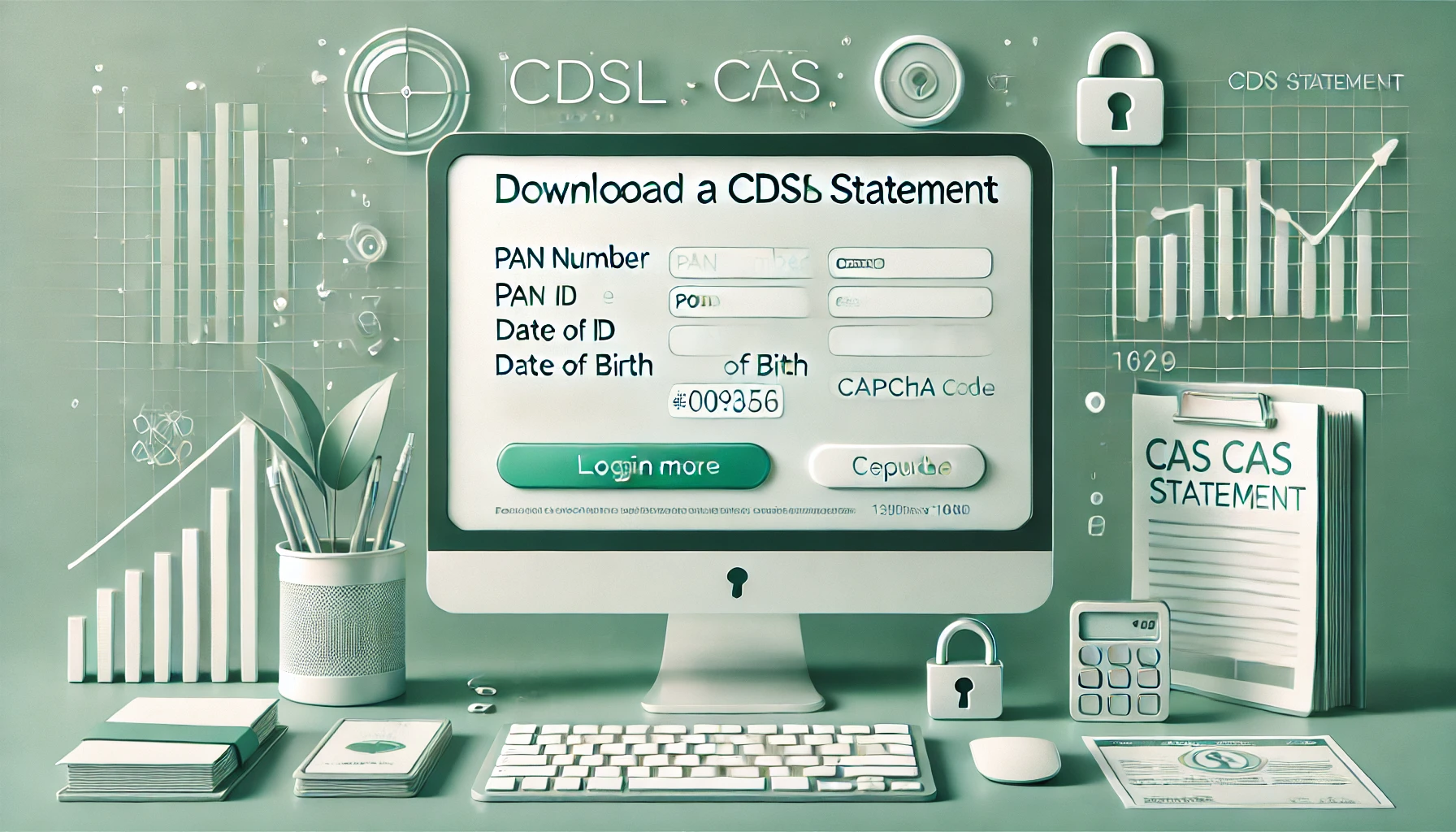
Succession Laws in India: Hindu, Muslim & Christian Inheritance Explained
Understand how inheritance works in India under Hindu, Muslim, and Christian laws - key di...
Many Indian families experience disputes and delays when a loved one passes away without clear instructions. Take Amit’s case - when his father died without a Will, accessing even a bank account became a legal process. Flats were contested, LIC claims were delayed, and tension grew between siblings.
This situation isn’t rare. It’s common.
If you own any property, savings, gold, insurance, or even digital assets - you already have an estate (meaning: everything you legally own in your name).
Estate planning ensures that these assets are passed on smoothly to your intended recipients - without conflict, court cases, or stress for your family.
You need estate planning not just for legal reasons, but to protect your loved ones from confusion, delays, and disputes.
And no, estate planning isn’t only for the rich. Even if all you have is a modest home, a bank account, and an LIC policy - you still need a plan.
A simple Will is often all it takes to ensure your family isn’t stuck waiting for succession certificates or legal claims.
Estate planning isn’t about how much you own - it’s about who should get it, how, and when.
Estate planning is the process of legally deciding what happens to your assets - everything you own - after your lifetime. This includes property, bank accounts, gold, shares, insurance policies, vehicles, and even digital assets.
Your “estate” isn’t just land or real estate. In the Indian context, it could include:
Estate planning allows you to decide who will receive what, how it will be transferred, and when - all while reducing ambiguity and avoiding legal complications later.
It’s not just about death. It also involves preparing for situations like disability, ageing, or extended illness where you may be unable to manage your finances or make decisions.
In short, estate planning in India gives your family clarity, legal confidence, and peace of mind during uncertain times.
India does not follow a one-size-fits-all rule when it comes to inheritance. Succession laws vary based on religion:
If someone dies intestate (without a Will), the law decides how their assets are distributed.
For example, under Hindu law, the estate is divided among Class I legal heirs - typically the spouse, children, and mother - in equal parts.
This may not reflect your personal wishes. If you wanted your spouse to inherit everything - or exclude someone - the court will not automatically honour that without a Will.
Another common misunderstanding:
A nominee is not a legal heir. They are only a caretaker of the asset until the rightful heirs are determined by law or Will.
So even if your spouse is listed as nominee on your bank account or insurance, your children or other legal heirs may still have a claim. That’s why relying only on nominations - without an estate plan - can cause confusion and delay.
Estate planning in India plays a crucial role in preventing delays, disputes, and emotional stress during an already difficult time.
Without a proper plan:
In many cases, legal heirs are forced to obtain a succession certificate or legal heir certificate, which can take weeks or even months - involving paperwork, court fees, and repeated follow-ups.
Real estate is especially vulnerable. If multiple siblings inherit the same property by default, it may result in joint ownership conflicts - blocking the sale or use of that asset for years.
Estate planning gives you the power to choose who gets what, in a structured, legally valid way. It ensures that the people you care about are protected and can move forward without unnecessary legal hassles.
It also brings peace of mind - for both you and your family - knowing that your wishes are clear and legally documented.
Estate planning isn’t just a legal formality - it brings practical, emotional, and financial advantages for you and your family.
Here’s how:
Each of these benefits means one thing: less stress for your family, and more clarity around your legacy.
A proper estate plan in India typically includes the following elements:
A Will is the foundation of estate planning. It is a legal document that outlines how your property and assets should be distributed after your death.
It must:
Yes, handwritten Wills are legally valid in India if properly signed and witnessed.
Nomination is the act of naming someone to receive an asset in case of your death. It applies to:
A nominee is only a trustee, not necessarily the final legal heir - your Will decides the rightful recipient.
Joint ownership of property or bank accounts can make asset transfer simpler after death.
For example:
If your spouse is a joint holder of your home, they can retain or sell it without needing succession paperwork.
Similarly, “either or survivor” bank accounts allow uninterrupted access to funds.
Power of Attorney allows someone else to legally act on your behalf for financial or legal decisions.
When is a POA useful in India?
POA ends upon your death and must be registered for property-related transactions.
Trusts are optional but helpful when you want conditional control over how your assets are used after your lifetime.
If you want your daughter to receive ₹10 lakhs when she turns 25 and ₹25 lakhs only after she finishes her post-graduation, a trust can enforce this structure.
Trusts are also helpful for:
If you have minor children or dependents with special needs, guardianship ensures they’re taken care of financially and emotionally in your absence.
You can legally name a guardian in your Will to avoid court-appointed decisions after your passing.
These components work together to ensure your wishes are honoured, your family is protected, and the transition of wealth is smooth, clear, and legally sound.
Starting your estate planning journey may feel overwhelming, but it doesn’t have to be. Here’s a simple step-by-step process that anyone in India can follow - whether you’re 35 or 65.
Start by writing down all your assets - house, land, gold, bank balances, mutual funds, insurance policies, business interests, and even digital assets (like crypto or domain names).
> Knowing your net worth is the foundation of any estate plan.
Think about who should inherit which asset - your spouse, children, parents, siblings, or charities.
It’s okay if it takes a few drafts. The goal is clarity and fairness.
Draft a Will that reflects your wishes. It should:
You can write a Will on plain paper in India. No stamp paper or registration is mandatory (though registration is recommended for safety).
Ensure all your bank accounts, insurance policies, and mutual fund folios have updated nominees.
> This ensures smooth asset transfer and avoids claims from unintended parties.
Where possible, make your spouse or child a joint holder of key property or accounts. This avoids legal delays and paperwork later.
If you have minor kids or dependents with special needs, legally name a guardian in your Will.
> This is especially important in single-parent households or if you frequently travel.
If you live abroad (NRI) or are ageing, consider assigning a trusted family member with a POA - for banking, healthcare, or property matters.
A financial advisor (like Finnovate) can help you:
Store signed copies of your Will, insurance documents, and nominations in a fireproof file or locker.
Let your family know where to find them.
Life changes - so should your estate plan. Revisit your plan after:
With a bit of planning today, you can save your family stress, legal costs, and years of uncertainty later.
Finnovate’s team can guide you through every step - from understanding what to include, to getting your documents in place the right way.
Even with the best intentions, many Indians unknowingly make critical estate planning mistakes - some of which can cause years of stress for loved ones. Here are the most common ones to watch out for:
Avoiding these mistakes can save your family emotional stress, legal disputes, and unnecessary costs.
If you’re unsure about your current estate documents or want a second opinion, Finnovate can help review and restructure your plan - the right way.
At Finnovate, we believe your financial plan isn’t complete until your estate is structured - clearly, legally, and thoughtfully.
You can book a one-on-one session with our advisory team to get started - with no pressure to buy anything.
Book a Free Session
Estate planning is not something you do when you're old or rich.
It’s something you do when you care about the people you'll leave behind.
It’s about:
Start with a list. Write your Will. Let someone you trust know.
You don’t have to be perfect - you just have to begin.
Yes. A Will avoids future legal delays and formalises your wishes clearly.
Your assets will be distributed based on succession laws (like Hindu Succession Act), which may not reflect your wishes.
Yes. You can update your Will anytime while you're mentally sound.
Yes, as long as it's signed, dated, and witnessed by two people.
A nominee is a caretaker. The legal heir is determined by your Will or succession law and is the rightful owner.
Absolutely. NRIs can and should make Wills for assets located in India.
No. A simple Will can be written affordably. Estate planning is about clarity, not cost.
Disclaimer: This article is for general informational purposes only and does not constitute legal or financial advice. Please consult a qualified professional before making any estate planning decisions.
Popular now

Learn how to easily download your NSDL CAS Statement in PDF format with our step-by-step g...

Explore what Specialised Investment Funds (SIFs) are, their benefits, taxation, minimum in...

Learn How to Download Your CDSL CAS Statement with our step-by-step guide. Easy instructio...

Looking for the best financial freedom books? Here’s a handpicked 2026 reading list with...